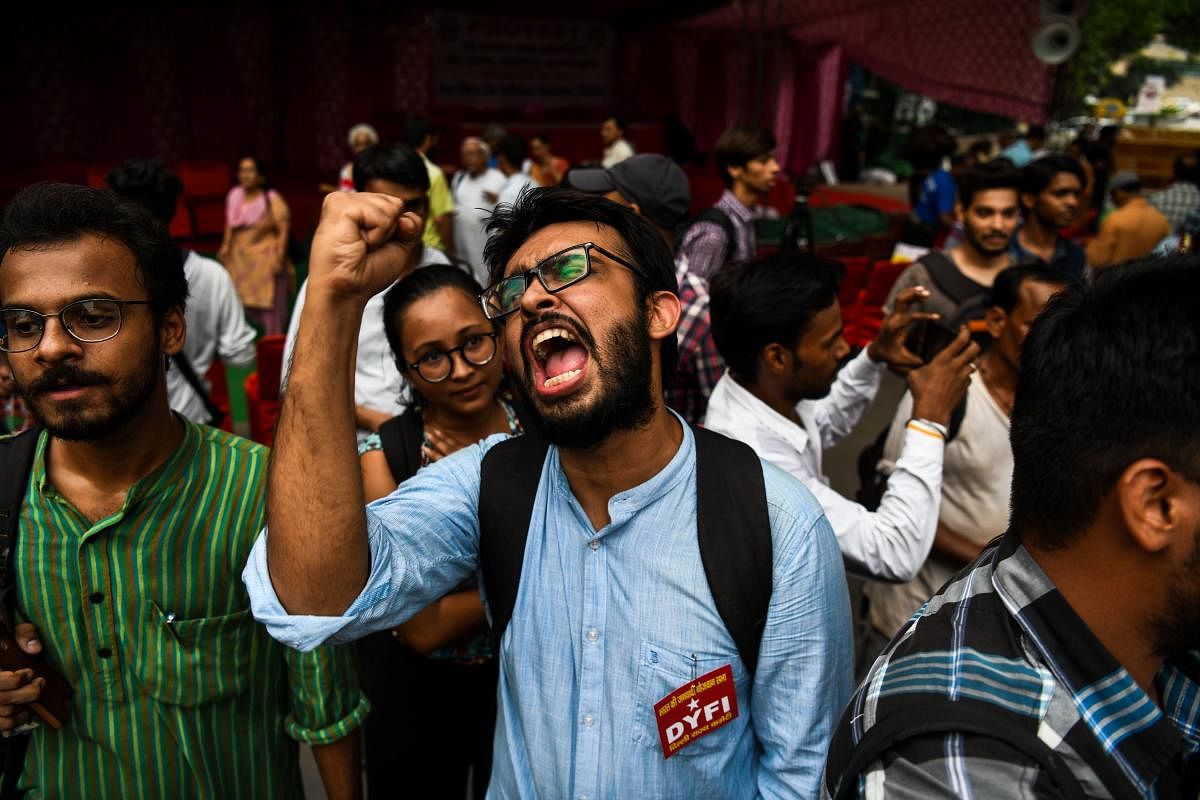
Recently, both the National Investigation Agency (Amendment) Bill, 2019, and the Unlawful Activities Prevention Act (Amendment) Bill, 2019, were passed by both Houses of Parliament. The amendments raised apprehensions in several quarters, on account of the potential threat to ordinary citizens, whereas the government claimed that it needed the teeth these laws provide to deal with terror.
The UAPA amendment was passed in the Lok Sabha on July 24 by 287 votes to eight. Congress members had demanded that the UAPA Bill be sent to a Standing Committee for further consideration and scrutiny. However, this was not done, and the Bill was passed in the Rajya Sabha by 147 votes to 42. Rejecting all apprehensions, the BJP government said the existing terror laws had to be changed to widen its reach as the terror-accused invariably take advantage of gaps. However, the Centre failed to produce any data or information showing failure in prosecuting terrorist offences by state police forces or by central agencies due to the existing laws.
With the amendments, the Centre has given itself the power to deem an activity of any individual as unlawful by declaring it in an Official Gazette. It also empowers the government to designate an individual suspected to have terror links as a terrorist (in addition to the existing power to proscribe organizations as terrorist organizations). Officers of the NIA of the rank of Inspector or above are allowed to investigate cases. It also allows the NIA to check anti-terror activities in a state without seeking permission from the concerned state police. It empowers the Director-General of NIA to grant approval of seizure or attachment of property during investigation of a case by an officer of the NIA. It increases the remand time to 30 days and makes the standard for bail stricter.
The provision to designate an individual as a terrorist drew the maximum flak. Arguably, the purpose of designating a person as a terrorist appears to be unnecessary as Chapter 4 of the UAPA already provides enough powers to arrest and prosecute a terrorist. The amendment only raises the potential of its misuse by the law enforcement agencies. Worse, it violates some fundamental principles of criminal law as it allows the State to designate a person as a terrorist without any proof and the burden of proving innocence is on the individual.
Anti-terror laws in India, like TADA or POTA, have had a controversial history of being misused, causing a large number of wrongful prosecutions and convictions as these laws admitted confessions made before the police as conclusive evidence, apart from providing for extended remand of the arrested person. The UAPA now repeats that history. This apart, the definition of a terrorist act in the UAPA is already so loose, broad and vague that it will almost inevitably be misused. This definition includes the death of, or injuries to any person, damage to any property, an attempt to overawe any public functionary by means of criminal force and any act to compel the government or any person to do or abstain from doing any act, etc. The inclusion of phrases such as ‘likely to threaten’ or ‘likely to strike terror in people’ are highly problematic.
Besides, this amendment will also violate the principle of natural justice as the burden of proof is on the individual and not on the State. It also hits several international instruments on this subject. It will have chilling implications on the privacy of individuals as there will be searches, seizures and arrests based on the ‘personal knowledge’ of police officers without enough judicial validation.
What is then the intent of the government in making these amendments? Perhaps, one reason is that the State is keen to tackle ‘radicalisation’ using the UAPA law as the definition of radicalisation is not yet legally available. Radicalisation is key to the making of terrorists in India, but the State has been unable to address it so far.
Serious apprehensions
The Anti-Terrorism Squads in Maharashtra, J&K and Kerala are already working in this direction, but their dilemma is that they cannot act in cases where they have serious apprehensions that somebody is being radicalised by organisations or individuals, online or offline. Handling such cases without any legal basis is difficult. Arguably, the amended provisions will now enable them to deal with such instances.
The ideal course would have been to consider the merits and grounds on which an individual could be associated with terrorist activities without violating the principles of criminal jurisprudence. This would require the State to define ‘radicalisation,’ and intervene depending upon the degree and manner of such radicalisation. Such intervention would include de-radicalisation measures in an institutional setting or non-institutional measures entailing psychological services, etc. This would avoid considerable criminalisation resulting from declaring someone a ‘terrorist.’
The recent NIA and UAPA amendments together appear to be constricting basic human rights. Not only will the accused persons themselves be targeted, but often their family members, friends and community, too, will face threats and ostracization. While the intention of the Centre to introduce these amendments may be sincere, as the main stated aim is to give the investigating authorities more teeth in handling and preventing terrorist activities, it is necessary that prior research is conducted on the likelihood of misuse and proper measures taken to avoid the same. These checks and balances are lacking in the case of these amendments.
(The writer is Professor & Chairperson, Centre for Criminology & Victimology, National Law University Delhi)